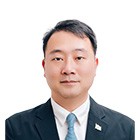Video
Publications
Op-ed
[The Chosun Ilbo Op-ed] Join Hands with Japan to Build Asian NATO
- Expert
- Yang Uk
- Hit
- 2,762
- Date
- 25-09-26 13:29
The Reciprocal Access Agreement (RAA) between Japan and the Philippines, signed on the 11th of last month, has entered into force. It is the third such agreement Japan has concluded, following Australia and the United Kingdom, and serves as a framework for cooperation to counter the authoritarian tripartite alliance of China, North Korea, and Russia, which is intensifying its coordination. South Korea remains excluded from this cooperative framework.
The recent military parade in Beijing marking "China’s Victory Day" exposed to the world that the anti-U.S. alliance is not merely a diplomatic event but a blatant challenge to the free world. The authoritarian tripartite alliance has completed a system of pressure on democratic nations by linking the Korean Peninsula, the Taiwan Strait, and the South China Sea into a single battlefield. Northeast Asia has become a powder keg that could erupt into simultaneous conflicts at any moment. Only swift and resolute joint responses from allies and partners can guarantee our survival.
South Korea and Japan are geographically inseparable and share a common destiny. Japan hosts seven U.N. Command rear bases, which play a critical role in reinforcing, supplying, and providing rear support to the Korean Peninsula in times of crisis. However, current security cooperation between South Korea and Japan is limited to the General Security of Military Information Agreement (GSOMIA). There is no institutional mechanism to guarantee the actual movement of forces or the use of bases. If North Korea’s concentrated missile attacks disable major South Korean air bases, our military operations would suffer fatal damage if we cannot utilize Japanese bases. In the event of war, stable logistics are essential, and Japan is a neighbor capable of assisting us in this regard.
Therefore, South Korea and Japan must promptly conclude the Reciprocal Access Agreement (RAA) and the Acquisition and Cross-Servicing Agreement (ACSA) to jointly respond to a North Korean invasion. The RAA institutionalizes the use of bases and ports, while the ACSA enables mutual support for essential military supplies such as ammunition, fuel, and food. Only when GSOMIA, RAA, and ACSA are combined will bilateral security cooperation reach a normal trajectory.
Both countries share a common recognition that security cooperation is unavoidable. With Japan maintaining its alliance with the U.S., the likelihood of Japan reverting to past militarism is slim. Dismissing security cooperation with Japan as acquiescence to its rearmament is a dangerous attitude that ignores the security realities we face. The U.S. is strongly urging the networking of alliances through its Indo-Pacific strategy. Without institutional cooperation with Japan, even the South Korea-U.S. alliance will struggle to fulfill its role.
Unlike Europe, the Asia-Pacific region lacks a collective security system and has relied solely on bilateral alliances with the U.S. To counter the authoritarian alliance of China, Russia, and North Korea, a democratic "Asian version of NATO" involving democratic nations is necessary. South Korea and Japan, as core U.S. allies and shared proponents of liberal democracy and market economies, must take the lead in establishing this Asian NATO. Cooperation between South Korea and Japan is not about erasing the past but making a choice for survival while remembering it. Now is the time to transcend the past and make a strategic decision.
* The view expressed herein was published on September 26 in The Chosun Ilbo and does not necessarily reflect the views of The Asan Institute for Policy Studies.

Yang Uk
Research Fellow, Director
As an expert in military strategy and weapons systems, Dr. Yang Uk has been active in the defense industry and private military enterprises for over 20 years, and founded and operated IntelEdge Inc., one of the first private military companies in Korea. Since leaving the company, he has commented on various military issues and international conflicts through broadcasting and news media, and has written various writings on weapon systems and military history. He obtained a doctorate in military strategy from Korea National Defense University (KNDU), and has analyzed North Korea's military strategy and WMD programs as a senior research fellow and the director of the WMD Center at the Korea Defense Security Forum (KODEF). He has been an active member of the policy advisory committee of Army, Air Force, Navy, Marine Corps, Joint Chief of Staff, Ministry of National Defense, and Office of National Security. Currently, he continues his research and advisory activities to each military service and government agency, teaching military revolution and modern conflicts at Korea Military Academy and Graduate School of National Defense Strategy of Hannam University.
view more


